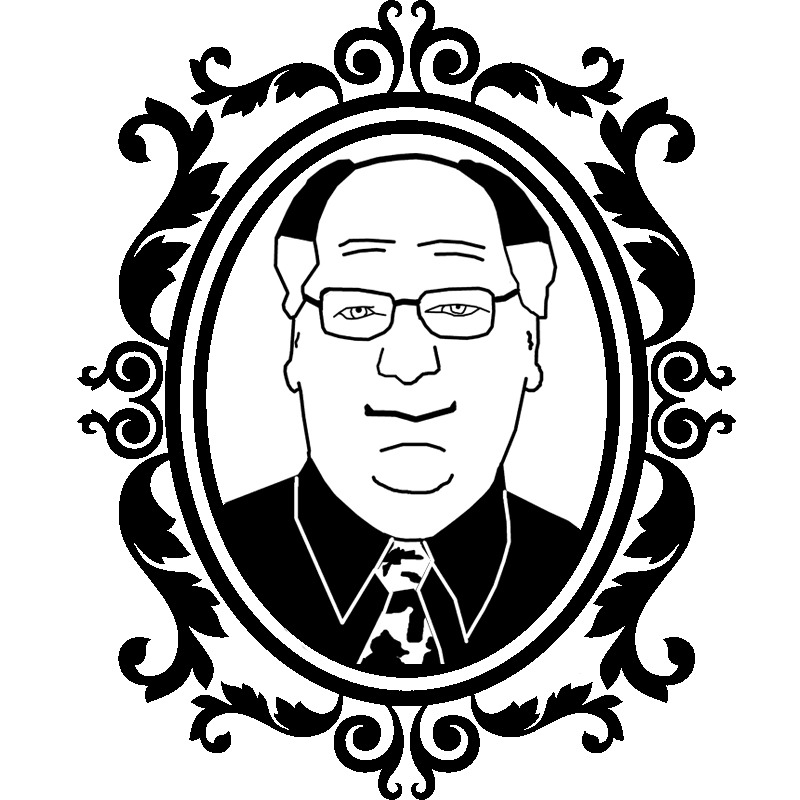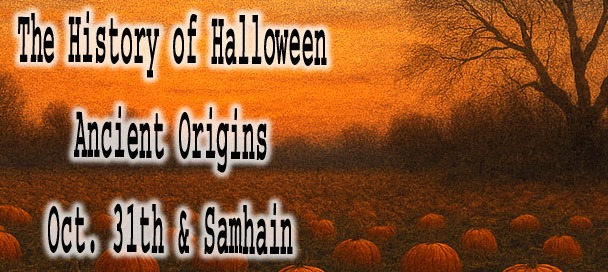🎤 Don Rickles: The Merchant of Venom Who Roasted His Way Into America’s Heart

Don Rickles headshot from 1973 in peak Vegas form
Don Rickles didn’t just step on stage he stormed it. With a sneer, a smirk, and a barrage of lightning-fast insults, he rewrote the rules of comedy. Where others sought applause through charm, Rickles won crowds with sheer audacity. His style was fearless, relentless, and oddly endearing earning him the nickname “Mr. Warmth,” the ultimate in comedic irony.
Don Rickles pioneered a sharper, more confrontational style of comedy that cut through niceties to land direct laughs. He earned fame as “Mr. Warmth,” though his roasting often made audiences squirm before they laughed. From nightclub stages to late-night TV and stand-up specials, his biting humor made him a fixture in comedy and pop culture. Rickles balanced insult with affection, leaving a legacy as the comic who could skewer and charm in the same breath.
Before he became a household name, Rickles was already stirring up crowds in smoky nightclubs with his now-iconic insult humor. It was a daring approach in an era when most comedians played it safe. But Rickles never pulled punches. If you were in the front row, you were fair game. If you were on stage with him, you were already toast. He had the rare ability to make mockery feel like affection his insults cut, but his eyes always twinkled.
Television soon came calling. Rickles became a frequent guest on variety shows, talk shows, and celebrity panels where his off-the-cuff style couldn’t be scripted or contained. From The Tonight Show Starring Johnny Carson to frequent appearances on The Dean Martin Celebrity Roast, Rickles always stole the spotlight. He didn’t care who you were he cared if you could take a joke.
Even with his acerbic style, Rickles was beloved by the very celebrities he skewered. Sinatra. Carson. Martin. They all came back for more. Why? Because beneath the bite was a deep understanding of timing, respect for tradition, and a genuine affection for showbiz. Rickles didn’t just roast people he elevated them.
Don Rickles taught that comedy could sting, but also heal he wielded mockery as a tool, not a weapon, forging connections through audacious truth-telling.
👶 Early Life
Donald Jay Rickles was born on May 8, 1926, in the Jackson Heights neighborhood of Queens, New York. His father, Max, was an insurance agent, and his mother, Etta, was a fiercely supportive figure who would remain a dominant presence in his life and career. The Rickles household was a typical working-class Jewish family, full of ambition, opinionated voices, and a healthy dose of sarcasm around the dinner table.
From a young age, Don had a sharp tongue and quick reflexes when it came to conversation skills that would later define his career. But early on, he was more interested in acting than comedy. After graduating from Newtown High School, Rickles enlisted in the U.S. Navy during World War II, serving as a seaman first class in the Pacific theater. Though the experience gave him discipline, it wasn’t the stage he craved.
After the war, Rickles enrolled at the American Academy of Dramatic Arts in New York, hoping to land serious acting roles. But Hollywood wasn’t handing them out easily to a short, balding wisecracker from Queens. Frustrated by rejection, Rickles began filling awkward pauses in auditions with spontaneous barbs and comebacks. Surprisingly, those off-the-cuff insults started to get more attention than the scripted lines ever did.
What began as frustration turned into revelation. Rickles discovered that people loved being roasted as long as it was funny. He leaned into it, turning his knack for verbal jabs into a full-on comedic assault. The stage was no longer a place to act; it became his battlefield and Don Rickles was going to win every round.
Explore the Biographies of Iconic Celebrities
🎤 Stand-Up Breakthrough & Vegas Stardom
Don Rickles - Stand Up - Saturday Night Live
Don Rickles’ rise in the world of stand-up wasn’t instant but it was explosive once it hit. In the early 1950s, he started performing at small clubs across the country, often to hostile crowds unsure how to react to his caustic style. Instead of softening his act, Rickles doubled down. He mocked, he provoked, he tore into hecklers with such finesse that audiences couldn’t help but laugh especially when they realized they might be next.
Everything changed the night Frank Sinatra walked into the room. Rickles, unfazed by the presence of the most powerful man in show business, greeted him with the now-famous line, “Make yourself at home, Frank hit somebody!” Sinatra howled, and a legend was born. That one moment of fearless bravado launched Rickles into the upper echelon of comedy. Suddenly, he wasn’t just another nightclub act he was the act.
Soon, Las Vegas became Rickles’ kingdom. He played the Sahara, the Riviera, and later the Tropicana, where he ruled the showroom with a microphone and a mean grin. His performances were never the same twice every night was a new war of wits. Celebrities lined up to sit in the front row just to be insulted. Dean Martin, Sammy Davis Jr., Bob Hope they all took their hits with pride. Being roasted by Don Rickles became a badge of honor.
Rickles’ act defied categories. He wasn’t a storyteller, a one-liner guy, or a joke writer he was pure improvisation, a master of reading the room and striking with surgical timing. He invented a genre all his own: the insult comic who was somehow still lovable. He had the guts to say what others wouldn’t, but the heart to never make it mean. Vegas gave him the spotlight and Don Rickles lit it up.
🎬 Film & TV Career: A Roastmaster with Range
Don Rickles - on Johnny Carson Tonight Show
Though Don Rickles built his reputation on nightclub stages, Hollywood couldn't resist his unpredictable charm. He made his film debut in 1958’s Run Silent, Run Deep alongside Clark Gable and Burt Lancaster, proving he could hold his own in a serious war drama. But it wasn’t long before casting agents realized his razor-sharp comedic persona was his true power.
In the 1960s, Rickles hit his stride on the small screen, becoming a frequent guest on The Tonight Show Starring Johnny Carson where his unscripted barbs at Johnny, Ed McMahon, and just about everyone in the building became legendary. He also guest-starred on popular shows like The Munsters, The Twilight Zone, and Gilligan’s Island, often stealing scenes with just a few lines.
One of his most memorable early TV roles came in 1965 on Gomer Pyle, U.S.M.C., followed by a recurring part on The Addams Family. In 1972, he headlined his own sitcom, The Don Rickles Show, though it only lasted one season. Still, TV producers couldn’t get enough of him he became a fixture on The Dean Martin Show, The Mike Douglas Show, and game shows like Match Game and Hollywood Squares, where he kept the entire panel on their toes.
Film offered another playground. He starred in the 1970s comedy Kelly's Heroes with Clint Eastwood, Telly Savalas, Donald Sutherland, and Carroll O’Connor holding his own among serious acting heavyweights. In Casino (1995), Martin Scorsese cast Rickles as Billy Sherbert, giving him a dramatic role alongside Robert De Niro, Joe Pesci, and Sharon Stone. He nailed it. The comedian even found renewed fame with a new generation by voicing Mr. Potato Head in the Toy Story franchise, alongside Tom Hanks and Tim Allen.
Rickles’ final years on screen included appearances on Hot in Cleveland with Betty White, Late Show with David Letterman, and Jimmy Kimmel Live!, where younger comics treated him with the reverence of royalty. From classic television to animated blockbusters, Don Rickles didn’t just stay relevant he became part of the fabric of American entertainment.
📘 Rickles’ Book: A Memoir
 Rickles' Book will make you love one of the great Americans of our time, Don Rickles.
Rickles' Book will make you love one of the great Americans of our time, Don Rickles.
- Help you win friends and influence people.
- Introduce you to all of his famous friends, from Frank Sinatra to Johnny Carson.
- Help you lose weight.
- Help you gain weight.
- Improve your love life.
- Make you cry (if your love life doesn't improve).
- Make you laugh (if your love life does improve).
- Give you something to talk about at parties (if you're ever invited to parties).
- Grace your bookshelf alongside the Bible and War and Peace.
- Keep you up at night.
- Put you to sleep at night.
- Make you rich (if you treasure great humor).
🕊️ Later Years
As the decades rolled on, Don Rickles showed no signs of slowing down. While many of his contemporaries faded from the spotlight, Rickles kept packing theaters, appearing on late-night shows, and lending his voice to animated hits. His live performances, especially in Las Vegas and Atlantic City, remained a hot ticket well into his 80s. Fans young and old came to see a master at work, delivering unscripted, unpredictable, and side-splitting performances that hadn’t dulled with age.
In 2000, Rickles reunited with Clint Eastwood for The Navy’s 225th Birthday Ball, a nod to their time together in Kelly’s Heroes. In 2007, he starred in the Emmy-winning HBO documentary Mr. Warmth: The Don Rickles Project, produced and directed by his longtime friend John Landis. The film featured testimonials from Bob Newhart, Sarah Silverman, Chris Rock, Joan Rivers, and even Whoopi Goldberg all praising Rickles as the godfather of no-holds-barred comedy.
Despite his acerbic stage persona, those who knew him offstage described Rickles as warm, loyal, and surprisingly gentle. He shared a deeply devoted marriage with his wife Barbara for over five decades, and their relationship remained the bedrock of his personal life. The two were often seen together at events, with Rickles never missing a chance to joke about how she kept him in line.
Even after health issues began limiting his travel, Rickles continued working. He recorded lines for Toy Story 4 before his passing, ensuring Mr. Potato Head would make one last appearance. Don Rickles died on April 6, 2017, at the age of 90, leaving behind a legacy that spanned more than six decades. His death marked the end of an era but not the end of his influence. His timing, style, and fearless honesty continue to inspire comedians worldwide.
Even big stars feared Rickles’s quick wit yet many asked for shots at him too, proving he was equally loved and dreaded in showbiz circles.
🏆 Legacy
Don Rickles didn’t just influence comedy he redefined it. His rapid-fire insult style carved out an entirely new lane for stand-up, one that dared to be confrontational while somehow remaining endearing. He turned mockery into an art form, and his approach paved the way for everyone from Robin Williams and Eddie Murphy to Lisa Lampanelli and Dave Chappelle. Rickles proved you could be bold, brash, and brutally funny without crossing into cruelty.
His impact reached far beyond the comedy clubs. Rickles was a guest at Ronald Reagan’s second inaugural gala, roasted countless celebrities on network specials, and even brought his act to the White House Correspondents’ Dinner. He became a symbol of fearless showbiz tradition, someone who had earned the right to poke fun at anyone and they’d thank him for it afterward.
Younger generations embraced him, too. His role as Mr. Potato Head in the Toy Story series made him a household name with kids, while appearances on shows like The Simpsons, Family Guy, and Curb Your Enthusiasm kept his name and his bite alive on television. Comics like Jerry Seinfeld, Jimmy Kimmel, and Chris Rock have all credited Rickles as a master of timing and truth-telling.
In a world of ever-changing tastes and tighter boundaries, Don Rickles stood as a reminder that comedy, when done with heart, has no expiration date. He didn’t need a catchphrase. He was the punchline, the set-up, and the mic drop all rolled into one. Mr. Warmth may be gone, but the echo of his laughter still lingers sharper than ever.
🗣️ Why They Still Matter
Don Rickles’s comedic style continues to resonate because it pushed boundaries while retaining humanity. His approach influenced generations of roasters and stand-ups who see insult as a performance art, not mere spite. Today’s roast culture, comedy podcasts, and sharp-edged humor all trace something back to his fearless voice.
Further Reading & Resources
📖 21 Jokes of Don Rickles: A Tribute to the King of Insults
📰 Don Rickles | Biography, TV Series, Movies, & Facts - Britannica

ML Lamp is the owner of Kilroy Was Here. After his 20 years of working in Las Vegas in the entertainment promotions field, Mr. Lamp retired in 2002 from his job to pursue his passion for collectibles. Now as a guest speaker and author he’s living the dream, and sharing his warmth with You.





